Over a barrel: England’s pub landlords caught between fear and need to reopen | Free to read
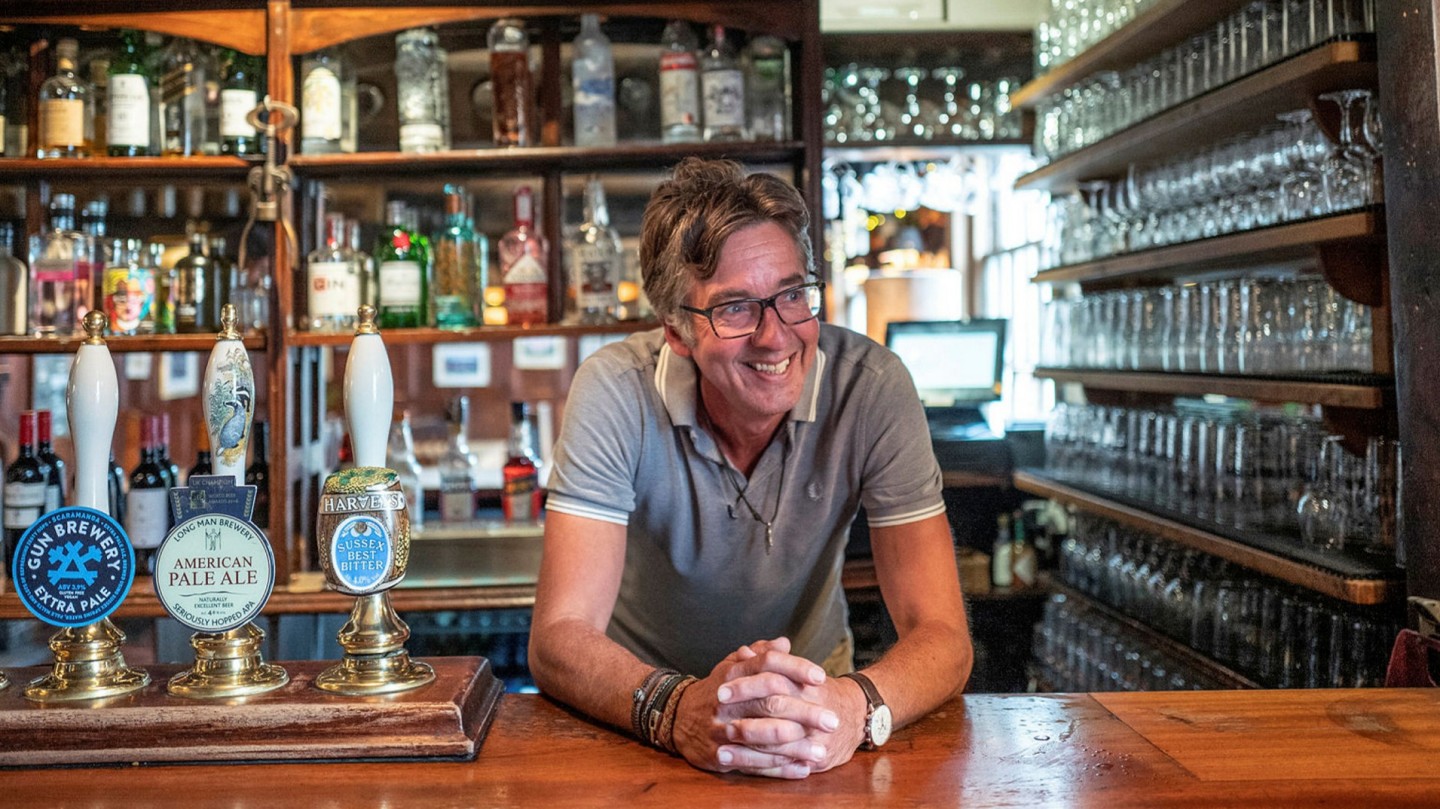
Simply sign up to the Coronavirus economic impact myFT Digest -- delivered directly to your inbox.
It will be the biggest round of drinks in local history. Harvey’s, the independent Sussex brewer, has supplied free of charge the equivalent of 216,000 pints of beer for pubs to sell when they reopen in England this Saturday after 15 barren weeks of lockdown.
It is a moment of trepidation as well as excitement for publicans, eager to make up for lost time, but wary of what the future holds in the age of Covid-19.
For an industry that has seen almost a quarter of pubs close in the past decade, UK prime minister Boris Johnson’s order for bars, restaurants and other hospitality businesses to shut down in March was a devastating blow.
With some of the most lucrative summer months already lost and the need for social distancing and other restrictions still in place, landlords worry about the prospects of an institution so deeply entwined in British social and cultural life.
“We are opening halfway through the summer with all these restrictions as well as the dread factor, ” said James Pullan, landlord at the Griffin Inn in the East Sussex village of Fletching. “It’s like starting the whole business again from scratch.”
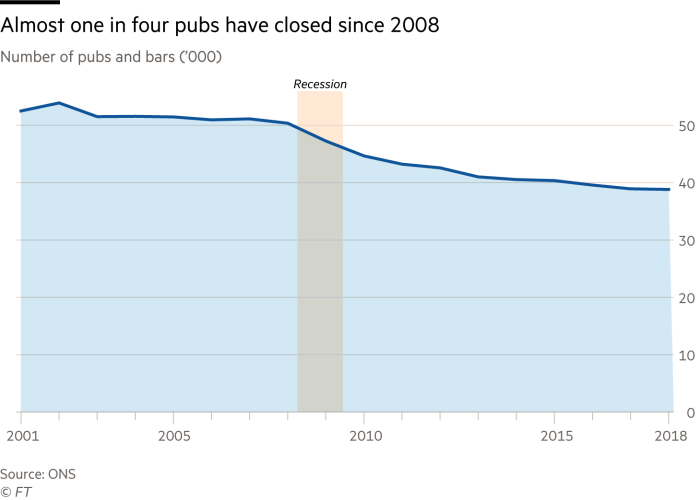
Owned for the past 35 years by his family, the pub is steeped in local lore, has a diverse cast of regulars and a culinary reputation that in normal times brings punters in from far afield.
It has been continuously licensed for 500 years. In common with about 35,000 pubs in England, this is the first time, as far as anyone can remember, that it has been shuttered for so long.
Mr Pullan described himself as an “eternal optimist” and said he had used the last weeks of lockdown to revamp the business, creating an expanded service outdoors where he has wood ovens and a beach-style bar. The Griffin is lucky to have a large garden overlooking bucolic scenes of rolling farmland and grazing animals — the “Sussex Serengeti”, as the landlord likes to call it.
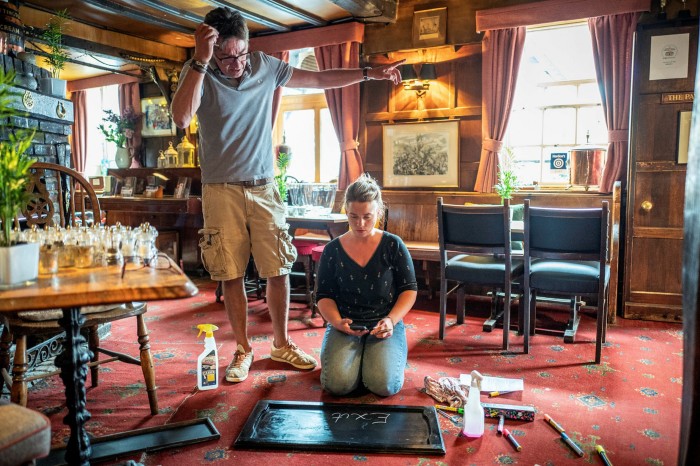
“We gave it such a deep clean, digging out the dirt and gunk from 500 years. We worried it might be holding the fabric of the whole building together,” he said, pointing at parquet floors and panelled walls, waxed for the first time in years. Friends, family and furloughed staff volunteered their time “to get us out of the shit”, he said.
Like most pubs, the Griffin might not have survived were it not for the government scheme that allowed it to furlough 30-odd staff. It has also borrowed from the bank, investing more than £30,000 to relaunch.
Weather permitting, these efforts won’t have gone in vain. In a sign the English public is eager to embrace a return to some form of normality, the pub has taken bookings for 500 covers this weekend. Risk assessments have been carried out, one-way systems organised around the inside bar and staff equipped with protective gear.
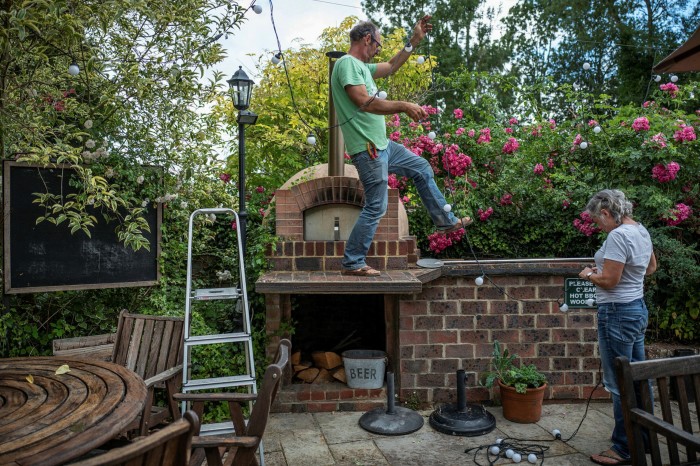
Mr Pullan who will be borrowing a beekeeper’s outfit to mark the occasion, said there was only so much the pub could do to mitigate risks. The punters will have to do their bit, he said, adding: “We are a hospitality business, not a hospital.”
The government faced a delicate balance between preserving jobs and preventing a second wave of infection, when it decided to allow pubs and restaurants to throw open their doors, and relaxed social-distancing guidelines from a two-metre rule to “one-metre plus” on June 23.
But the prime minister was anxious to strike a note of caution ahead of what police fear could be an unruly national booze-up after months of hibernation. “I hope people will do this safely and sensibly . . . My message is let’s not blow it now folks,” he told LBC Radio on Friday morning.
For the occasion in Sussex, Harveys agreed to replace all the spoiled beer their clients were forced to jettison when lockdown began. But the brewery is taking an otherwise cautious approach, moving production up to just 30 per cent of capacity at the outset.
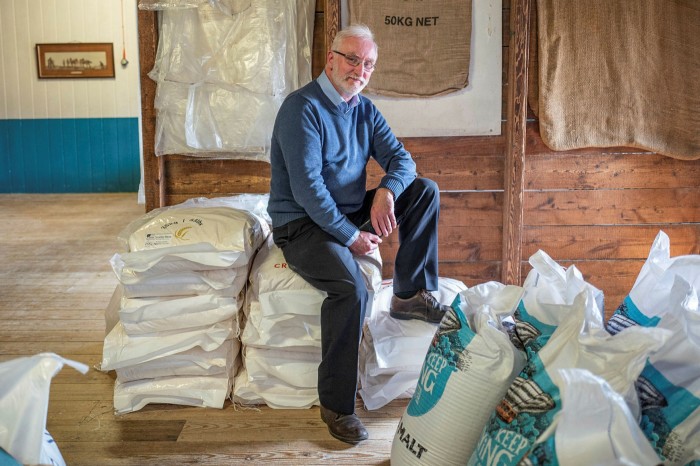
“There is no way to predict it. Nobody knows what it will be like come Christmas,” said Hamish Elder, who co-runs the brewery and is a direct descendant of John Harvey, who founded it in 1790.
Harvey’s was hit by a fire in 1996 in the county town of Lewes and was flooded in 2000 when the river Ouse burst its banks. But this “pestilence”, said Mr Elder, was far more challenging. It had affected every customer. Of its 43 tied pubs, only half would be reopening this weekend.
“There’s an awful lot of suck it up and see,” said Miles Jenner, master brewer and part-owner.
Up the road at the Lewes Arms the landlord, Paul Resende, was perched on the pavement as a forlorn punter passed by, inquiring if he would be opening soon. The pub’s front bar is usually rammed with ageing regulars and retirees, crowded in shoulder to shoulder.
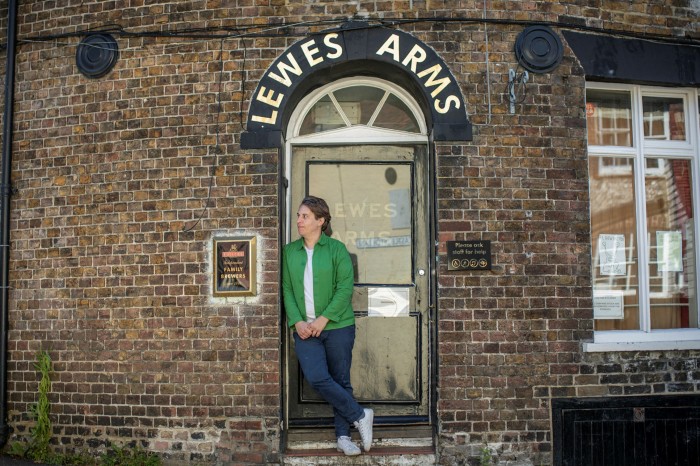
“I am not opening on ‘super Saturday’,” said Mr Resende. “We have lots of small rooms and lots of crannies. I am not comfortable with it for now,” he said, adding that many landlords like him were nervous about litigation if the virus spiked again after pubs reopened.
Much was at stake, Mr Pullan concurred, describing the pub as the great leveller, where the English class system remains at the door, landed gentry drink from the same barrel as farm hands, and poachers eyeball gamekeepers across the bar.
“The pub is one of the few institutions you can identify as truly British that we can still be proud of and we are still loved for around the world,” he said.
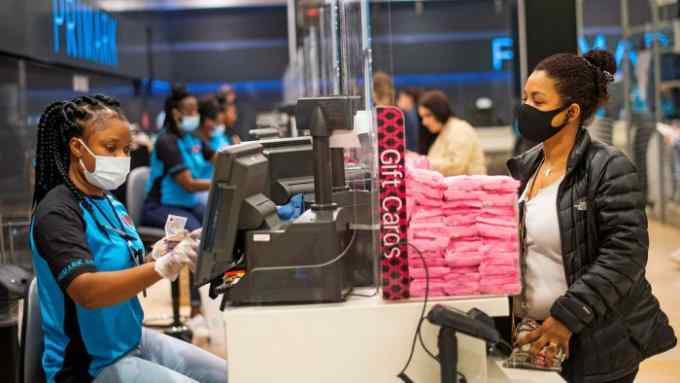
Comments